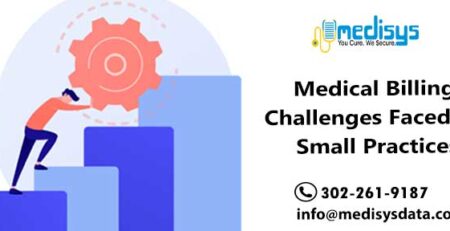Effective medical billing is essential for healthcare organizations to maintain financial stability and ensure accurate reimbursement. One critical aspect of the medical billing process is accurate charge entry. Accurate charge entry involves meticulously recording the services provided to patients, along with their corresponding charges. Failing to enter charges accurately can result in costly errors that can impact the revenue cycle and hinder the organization’s financial health.
In today’s article, we will delve into the importance of accurate charge entry in medical billing and explore the potential consequences of errors. We will discuss how inaccuracies in charge entry can lead to claim denials, delayed payments, and even legal ramifications for healthcare providers. Additionally, we will highlight the significance of training and education for billing personnel to ensure they have the skills and knowledge necessary to perform this critical function accurately.
By understanding the importance of accurate charge entry and implementing best practices, healthcare organizations can optimize their revenue cycle, increase cash flow, and minimize the risk of costly errors. Join us as we uncover the crucial role of accurate charge entry in medical billing and its impact on financial success.
The impact of inaccurate charge entry on medical billing
Accurate charge entry is essential for healthcare organizations to maintain financial stability and optimize their revenue cycle. Inaccurate charge entry can lead to claim denials, delayed payments, and potential legal ramifications. By prioritizing accurate documentation, implementing best practices, providing training and education, and leveraging technology solutions, healthcare organizations can significantly reduce the risk of errors and improve their financial success.
The importance of accurate charge entry cannot be overstated. It is a critical function that requires attention to detail, adherence to coding guidelines, and continuous education. By investing in accurate charge entry, healthcare organizations can ensure efficient reimbursement, increased cash flow, and minimized financial risks.
Common errors in charge entry and their consequences
There are several common errors that can occur in charge entry, each with its own set of consequences. Some of the most common errors include incorrect coding, missing information, and duplicate charges.
Common errors of charge entry in medical billing
Incorrect coding is a prevalent error in charge entry. If a healthcare provider uses the wrong code to bill for a service, the claim may be denied or delayed. Additionally, incorrect coding can result in overbilling or underbilling, which can impact the organization’s revenue.
Missing information is another common error in charge entry. If a claim is missing critical information, such as the patient’s name or date of service, the claim may be denied or delayed. This can cause a significant financial burden on healthcare organizations and may require additional resources to resolve the issue.
Duplicate charges are also a prevalent error in charge entry. If a healthcare provider bills for the same service twice, the claim may be denied or delayed. Additionally, duplicate charges can result in overbilling, which can impact the organization’s revenue.
Consequences
One of the primary consequences of inaccurate charge entry is claim denials. Insurance providers may deny claims that have incorrect or incomplete information, leading to a delay in payment or even a complete rejection of the claim. This can cause a significant financial burden on healthcare organizations and may require additional resources to resolve the issue.
Delayed payments are another common result of inaccurate charge entry. Insurance providers may take longer to pay claims that have inaccuracies, which can lead to a decrease in cash flow for healthcare organizations. This can impact the organization’s ability to pay bills and may result in financial instability.
Inaccurate charge entry can also result in legal ramifications for healthcare providers. If a healthcare provider bills for services that were not provided or bills for services that were provided but not documented, they may be subject to legal action. This can lead to fines and penalties, as well as damage to the reputation of the healthcare provider.
Importance of accurate documentation in charge entry
Accurate documentation is essential for accurate charge entry. Healthcare providers must document all services provided to patients, along with the corresponding charges. This documentation must be accurate and complete to ensure the claim is processed correctly.
One critical aspect of accurate documentation is ensuring that the documentation matches the codes used for billing. If the documentation does not match the codes used for billing, the claim may be denied or delayed. Additionally, accurate documentation can help healthcare providers avoid legal ramifications, as it provides a detailed record of the services provided.
Accurate documentation also helps healthcare providers avoid errors in charge entry. If the documentation is accurate and complete, the charge entry specialist can enter the charges correctly, reducing the risk of errors.
Best practices for accurate charge entry in medical billing
To ensure accurate charge entry, healthcare organizations should implement best practices for charge entry specialists. These best practices include:
- Providing training and education: Charge entry specialists should receive training and education on medical billing and coding, as well as on the specific procedures and services provided by the healthcare organization.
- Double-checking information: Charge entry specialists should double-check all information before entering it into the system to ensure accuracy.
- Using technology solutions: Healthcare organizations can use technology solutions, such as billing software, to automate charge entry and reduce the risk of errors.
- Performing regular audits: Healthcare organizations should perform regular audits of their charge entry processes to identify and correct errors.
By implementing these best practices, healthcare organizations can optimize their revenue cycle and minimize the risk of costly errors.
Training and education for charge entry specialists
Training and education are essential for charge entry specialists to ensure they have the skills and knowledge necessary to perform this critical function accurately. Charge entry specialists should receive training on medical billing and coding, as well as on the specific procedures and services provided by the healthcare organization.
Healthcare organizations can provide this training through in-house training programs or by partnering with external training providers. Additionally, charge entry specialists should be required to complete continuing education courses to stay up-to-date on changes to medical billing and coding regulations.
Technology solutions for accurate charge entry
Technology solutions can help healthcare organizations reduce the risk of errors in charge entry. Billing software can automate charge entry and reduce the risk of errors by eliminating manual data entry. Additionally, billing software can provide real-time access to information, allowing charge entry specialists to quickly identify and correct errors.
Electronic health record (EHR) systems can also help healthcare organizations ensure accurate charge entry. EHR systems can provide real-time access to patient information, allowing charge entry specialists to accurately document services provided and corresponding charges.
Case studies highlighting the financial impact of accurate charge entry
Several case studies have highlighted the financial impact of accurate charge entry. In one case study, a healthcare organization was able to increase its revenue by $500,000 per year by implementing best practices for charge entry.
In another case study, a healthcare organization was able to reduce its claim denial rate from 20% to 5% by implementing best practices for charge entry. This resulted in a significant increase in revenue for the organization.
Strategies for avoiding costly errors of Charge Entry in Medical Billing
Inaccurate charge entry can have a significant impact on the revenue cycle of healthcare organizations. Claims that are not accurately coded and billed can result in claim denials and delayed payments, which can cause a decrease in revenue and cash flow. Additionally, inaccurate charge entry can lead to legal ramifications for healthcare providers.
One of the primary consequences of inaccurate charge entry is claim denials. Insurance providers may deny claims that have incorrect or incomplete information, leading to a delay in payment or even a complete rejection of the claim. This can cause a significant financial burden on healthcare organizations and may require additional resources to resolve the issue.
Delayed payments are another common result of inaccurate charge entry. Insurance providers may take longer to pay claims that have inaccuracies, which can lead to a decrease in cash flow for healthcare organizations. This can impact the organization’s ability to pay bills and may result in financial instability.
Inaccurate charge entry can also result in legal ramifications for healthcare providers. If a healthcare provider bills for services that were not provided or bills for services that were provided but not documented, they may be subject to legal action. This can lead to fines and penalties, as well as damage to the reputation of the healthcare provider.
Join us in our commitment to accurate charge entry
Ready to streamline your charge entry process and boost your practice’s revenue? Partner with Medisys Data today! Our experienced team of billing experts can help ensure accurate and efficient charge entry, so you can focus on providing quality patient care.
Let’s work together to optimize your medical billing process. Contact us now for a consultation and take the first step towards financial success.
Disclaimer: This article is for informational purposes only and should not be considered as legal, financial, or professional advice. Always consult with appropriate professionals for guidance specific to your healthcare organization’s needs.












